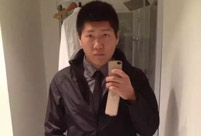

Baidu, China’s leading search engine, was ordered to revamp the “Pay for Placement” (P4P) listings in its search results after the widely publicized death of Wei Zexi, which many people blame partially on Baidu. A follow-up investigation was conducted by People’s Daily, and the results indicate there is still much room left for improvement, not only by Baidu but also by state regulators.
According to the overhaul requirements published by the Cyberspace Administration of China (CAC), commercial promotion for unauthorized medical treatments, drug and health care products must be taken offline. Commercial promotions, which must be clearly labeled, should account for less than 30 percent of search results.
The search results for synoviosarcoma and arthritis all adhered to the new requirements. The top seven results out of the 17 that came up on the first results page for “plastic surgery” were all labeled as commercial promotion, but eight promotions in total popped, exceeding the stipulated limit.
Besides medical treatment information, key word searches for interior decoration and other daily activities also went above the 30 percent cut-off. Almost half the search result pages were filled with advertisements.
Such a ratio of actual results to promotions also exists on 360, Sogou and other Chinese search engines. This is an influential and dangerous situation, as most people nowadays obtain the majority of their information through online searches.
“We cannot regard search engines simply as information providers, but as an important information infrastructure with a bigger social responsibility, which is to provide accurate and objective information to the general public,” said Chen Biaohong, Secretary-General of the information network committee of the All China Lawyers Association.
Apart from overlapping regulations and responsibility that is diffused among multiple authorities, insufficient legal supervision has also been fingered as a contributing factor. Several top political advisors have suggested classifying the P4P listing results as advertisements, and placing them under the regulations of advertisement law.
Since search engine results have wider coverage than traditional advertisements, they should bear even greater responsibility than what is stipulated in advertisement law, commented Xue Jun, a law professor at Peking University.
There are also voices claiming joint liability for search engines publicizing false medical and pharmaceutical practices. Other than penalties imposed through advertisement law, customer rights protection law and tort liability law should also be applied, some say.
“Legislation should follow the progress of technological improvements so as to not lag behind Internet innovation,” said Liu Junhai, Director of the Business Law Center of Renmin University.
This article was edited and translated from 搜索服务如何更靠谱? source: People's Daily
 French girl ties the knot with Chinese boy
French girl ties the knot with Chinese boy Beijing Style: ready for bare legs
Beijing Style: ready for bare legs Century-old station sees railyway evolution
Century-old station sees railyway evolution Enthusiasts perform Kung Fu at Wudang Mountain
Enthusiasts perform Kung Fu at Wudang Mountain Stunning photos of China's fighter jets in drill
Stunning photos of China's fighter jets in drill Monk's mummified body to be made into a gold Buddha statue
Monk's mummified body to be made into a gold Buddha statue Former Chinese solider of the French Foreign Legion seeks wife online
Former Chinese solider of the French Foreign Legion seeks wife online Asia's longest and highest suspension bridge to open to traffic
Asia's longest and highest suspension bridge to open to traffic China's first interactive robot looks like a beauty
China's first interactive robot looks like a beauty Top 20 hottest women in the world in 2014
Top 20 hottest women in the world in 2014 Top 10 hardest languages to learn
Top 10 hardest languages to learn 10 Chinese female stars with most beautiful faces
10 Chinese female stars with most beautiful faces China’s Top 10 Unique Bridges, Highways and Roads
China’s Top 10 Unique Bridges, Highways and Roads EU decision seen harming China ties
EU decision seen harming China ties Society firmly rejects Cultural Revolution
Society firmly rejects Cultural Revolution Villagers living near Vietnam border are still haunted by war’s legacy
Villagers living near Vietnam border are still haunted by war’s legacy As Chinese sci-fi picks up steam, it’s finding fans around the world
As Chinese sci-fi picks up steam, it’s finding fans around the worldDay|Week